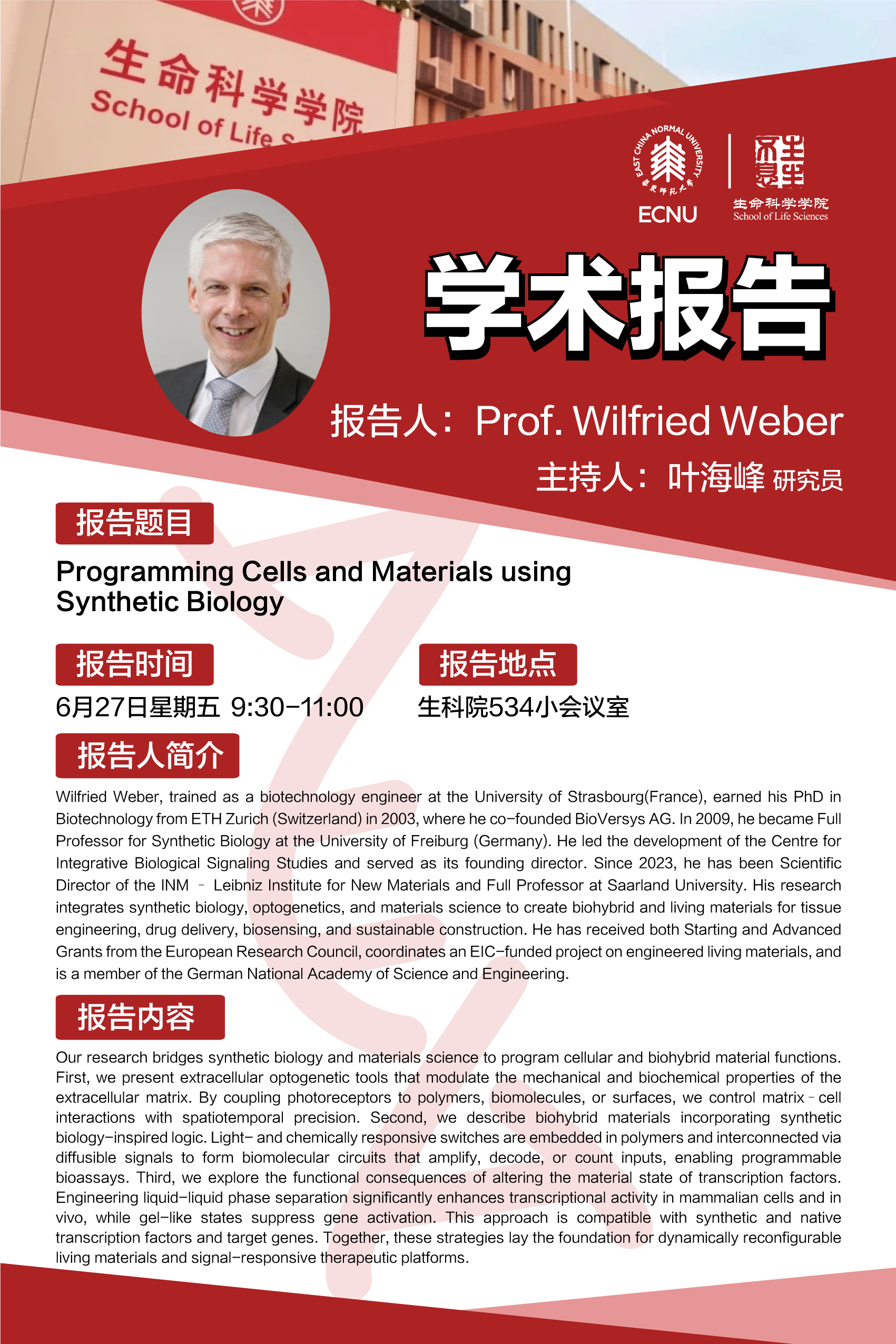



报告题目:Programming Cells and Materials using Synthetic Biology
报 告 人: Prof. Wilfried Weber
主持人/邀请人:叶海峰 研究员
报告时间:2025年6月27日 9:30-11:00
报告地点:闵行生科楼534小会议室
报告人简介:
Wilfried Weber, trained as a biotechnology engineer at the University of Strasbourg(France), earned his PhD in Biotechnology from ETH Zurich (Switzerland) in 2003, where he co-founded BioVersys AG. In 2009, he became Full Professor for Synthetic Biology at the University of Freiburg (Germany). He led the development of the Centre for Integrative Biological Signaling Studies and served as its founding director. Since 2023, he has been Scientific Director of the INM – Leibniz Institute for New Materials and Full Professor at Saarland University. His research integrates synthetic biology, optogenetics, and materials science to create biohybrid and living materials for tissue engineering, drug delivery, biosensing, and sustainable construction. He has received both Starting and Advanced Grants from the European Research Council, coordinates an EIC-funded project on engineered living materials, and is a member of the German National Academy of Science and Engineering.
报告内容简介:
Our research bridges synthetic biology and materials science to program cellular and biohybrid material functions. First, we present extracellular optogenetic tools that modulate the mechanical and biochemical properties of the extracellular matrix. By coupling photoreceptors to polymers, biomolecules, or surfaces, we control matrix–cell interactions with spatiotemporal precision. Second, we describe biohybrid materials incorporating synthetic biology-inspired logic. Light- and chemically responsive switches are embedded in polymers and interconnected via diffusible signals to form biomolecular circuits that amplify, decode, or count inputs, enabling programmable bioassays. Third, we explore the functional consequences of altering the material state of transcription factors. Engineering liquid-liquid phase separation significantly enhances transcriptional activity in mammalian cells and in vivo, while gel-like states suppress gene activation. This approach is compatible with synthetic and native transcription factors and target genes. Together, these strategies lay the foundation for dynamically reconfigurable living materials and signal-responsive therapeutic platforms.
